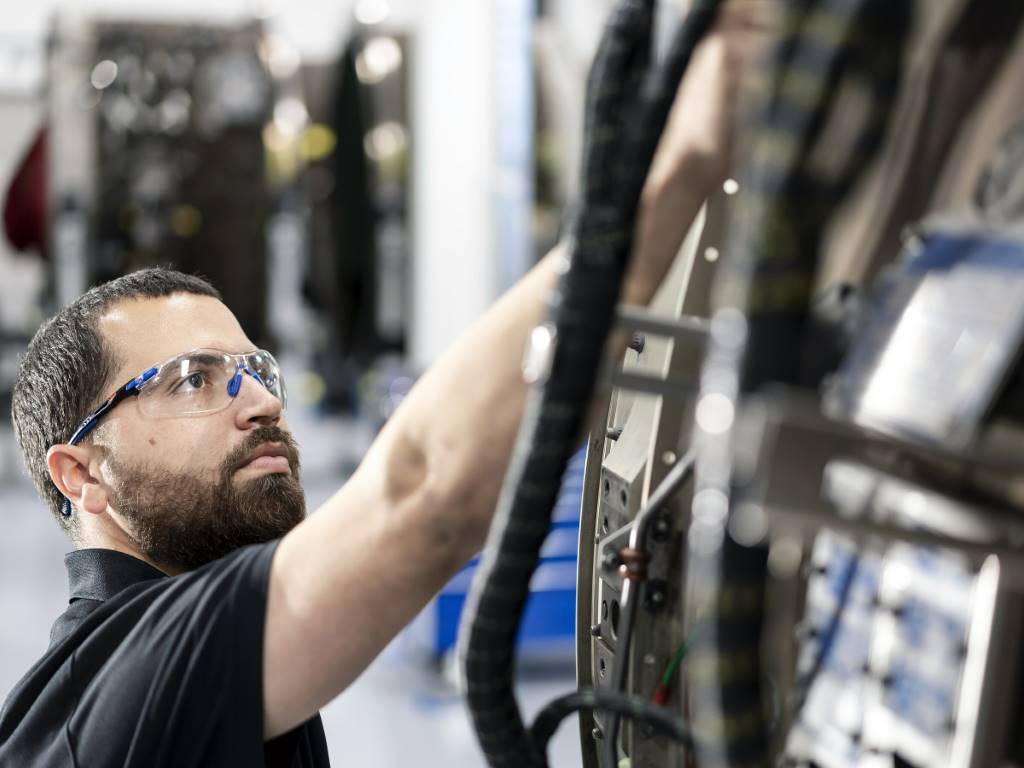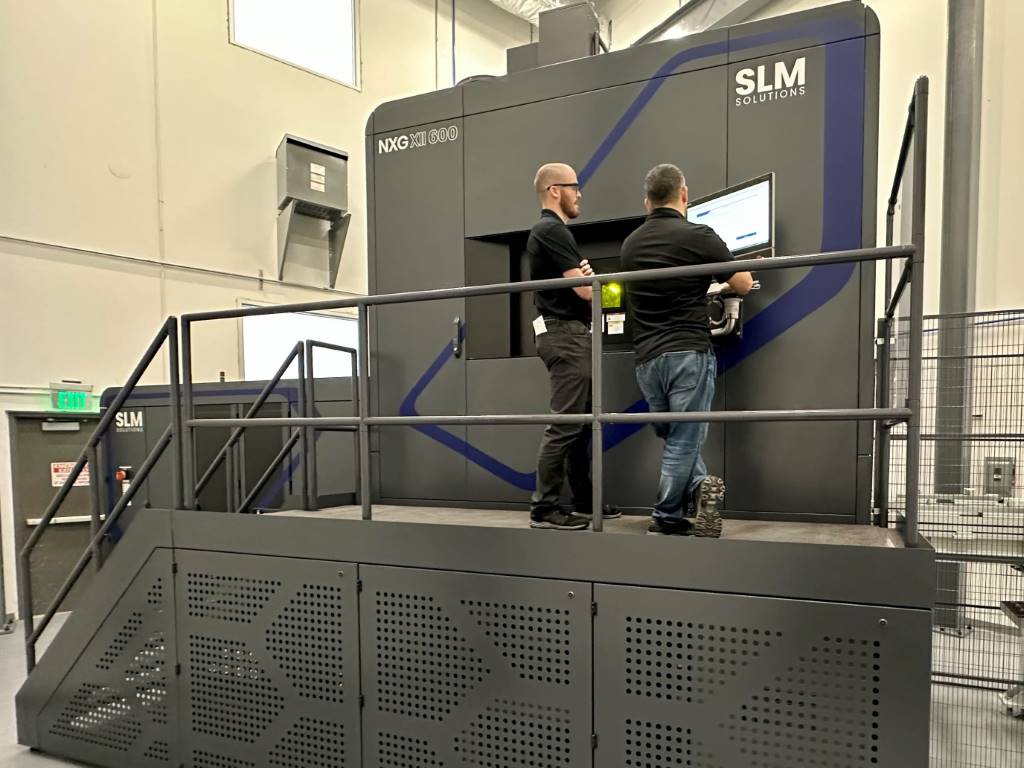One company across the world

Mike Richardson hears how thyssenkrupp Aerospace keeps its finger on the pulse of the metallics supply chain by maintaining continuous improvement and simply being open-minded and willing to adapt to changing customer requirements.
It’s been said that reducing total cost cannot always be achieved via the traditional buyer/seller partnership alone. However, if both parties are prepared to share information in order that they can both see where cost is being incurred, then through the application of lean principles, plus a good dose of common sense, it’s possible to create methods of supply which neither party would have been able to invent independently.
Formed in 2008, thyssenkrupp Aerospace supplies material and supply chain management services to the world’s leading aerospace companies and their supply chains. By operating from a multitude of service centres around the world, the company says it can aggregate demand across a single supply chain whilst simultaneously providing a responsive local service to meet the needs of individual subcontractors globally.
Delivering reliable and high-quality products, thyssenkrupp Aerospace’s services and solutions include, among others pre-machining, drilling, roughing and surface milling, plate cutting, near-net shape, sheet guillotining, profiling, and PVC coating, bar cutting and chamfering, tube cutting, deburring and washing, and waterjet cutting.
“Our entire vision is about offering customised global supply chain solutions for the aerospace industry,” begins thyssenkrupp Aerospace’s CEO, Patrick Marous. “For certain customers this might mean cutting plate, whereas for others it means cutting tube or rough machining, near net shaping or waterjet - it really depends on the customers’ requirements. There is a vertical chain within the industry and we go where the customer wants us to go. We find different value-added ways to enhance our customers’ experience.
“We have different customers that come to us looking for warehousing solutions, and whilst there are the big warehouse providers already out there, if we can offer a customised solution that is compatible with what we are already doing, then why would anyone want to move material all over the world when we are located nearby? We have had our 3rd Party Logistics (3PL) operation for a large aerospace customer in the US for some time now, which is really different to what we used to offer.”

Making material gains
This year, thyssenkrupp Aerospace has signed supply agreements with Magellan Aerospace and with Dynamatic Technologies Limited (DTL) to manage the entire warehouse and supply chain management of raw materials, as well as providing other processing services for both companies.
Magellan Aerospace’s main product group is aluminium plate, which will be serviced from the thyssenkrupp Aerospace UK Belfast and Birmingham operations, with the tube and extrusion products supplied from the thyssenkrupp Aerospace UK site in Milton Keynes.
DTL, located in Bangalore India, Swindon UK and Schwarzenberg Germany, is one of the leading Indian companies providing aircraft components. Both DTL and thyssenkrupp Aerospace have sites in Bangalore, which is often referred to as the aerospace capital in India.
“Magellan Aerospace had been a customer of ours for some time, but like many others, they’ve gone through some changes. We recently won back all of their plate contract work, which is an example of why our service levels make the difference in terms of satisfying their many specific requirements. What makes thyssenkrupp Aerospace so unique is that we are one company across the world. It means the customer will get the same experience in India as they would if they were located in Poland or America or wherever. We use one system, one customer service experience - obviously customised to the customer - but at the same time we want to ensure they feel like they are dealing with one company so that they can expect the same service level immediately.” To underline the international standards thyssenkrupp Aerospace has succeeded in converting their units in Europe, USA, Canada, China, India and Brazil to the latest versions of the quality certification to EN 9100 and EN 9120.
In terms of satisfying customer demands, Marous believes in having one global footprint allied to some strong analytics capabilities. Indeed, thyssenkrupp Materials Services, the parent company of thyssenkrupp Aerospace, recently unveiled its first forays into digital transformation by digitising its entire range and consolidating it within the world’s biggest virtual warehouse.
“We have an advanced set of analytics in terms of data management and understanding what is emanating from the forecasting side, optimising what we are processing and then ensuring we keep scrap levels as low as possible and the metal utilisation as high as possible. Customer services levels are another huge issue. Anyone can play the ‘price game’ in the metals supply market, and there is something to be said for total lowest cost of ownership too. A customer could easily choose lowest cost per kilo, but it ends up costing them more in the long run if their processes aren’t optimised, or they are throwing scrap away unnecessarily. It can actually cost more in the end, even though it may seem less expensive.”

Lightweighting and innovating
As with any other predominantly metallics-based supplier, thyssenkrupp Aerospace is having to keep a watchful eye on the developments of advanced lightweight materials like carbon fibre-reinforced plastic (CFRP) and various elixirs of aluminium-lithium. Is there a sea change taking place in the way aerospace OEMs view the use of traditional metals?
“If an OEM airframer is going to use CFRP, they have little choice but to use titanium, because aluminium and carbon corrode,” states company head of strategy, Peter McDowell. “Technically, it’s very difficult to attach aluminium to carbon fibre and avoid that corrosion - which is why if you look at the carbon fibre fuselage of a Boeing 787 for example, it’s full of titanium. This is great news for people connected with producing titanium, but not for those producing aluminium. One of the more interesting issues is that although Al-Li has some great properties, it’s very expensive, and it’s really only the defence sector that can exploit it.
“The most interesting challenge for me concerns the decisions about the next-generation single aisle aircraft - whether it comes from Airbus or Boeing - do they go down the carbon fibre route like they’ve done with the A350 and the B787, or do they stick with an aluminium fuselage? Inevitably, material total cost of ownership will drive this decision.”












